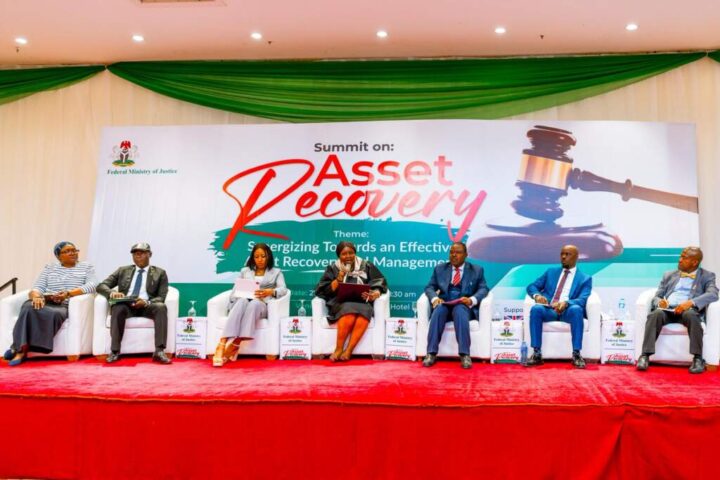The EFCC Chairman Ola Olukoyede has affirmed that the Commission’s asset tracing and recovery efforts are rooted in a firm commitment to hold corrupt individuals accountable and secure justice for victims of fraud.
He made this known on Tuesday at a summit organised by the Ministry of Justice on asset recovery.
The event, themed “Synergising Towards an Effective Asset Recovery and Management,” was held at the Continental Hotel, Abuja, and also featured the unveiling of the National Central Database of Forfeited Assets and the Proceeds of Crime (POCA) Regulations 2024.
“At the EFCC, our experience with asset tracing, recovery, and management is anchored on the philosophy that those who acquired wealth through corrupt means must be held accountable and that victims of graft receive justice through restitution,” Olukoyede said.
He emphasised that, in a legal environment where the resolution of corruption cases is often slow, the seizure of illicit wealth serves as a powerful deterrent.
He revealed that the EFCC, through both conviction-based and non-conviction-based strategies, recovers assets worth billions of naira annually.
Olukoyede, who was represented at the summit by the Director of Proceeds of Crime Management, G.K. Latona, described the newly launched central database as a major step forward.
He said the database would become a vital repository of information, enabling seamless access to data on recovered assets across all anti-corruption agencies in the country.
RECOMMENDED POSTS
“Even more remarkable is the unveiling of two key instruments that reflect the Attorney General of the Federation’s clear understanding of the existing gaps in asset recovery.
“These are the National Central Database of Recovered Assets and the Proceeds of Crime (Standardised Assets Forfeiture Management System) Regulations 2024. These initiatives are poised to enhance the integrity of recovered asset data,” he noted.
Olukoyede further described the new regulations as a bold step towards digitising Nigeria’s asset management system, moving away from the analogue practices that have long undermined efficiency and transparency.
However, he also highlighted persistent challenges in asset tracing and management, despite recent legislative improvements such as the enactment of the Proceeds of Crime (Recovery and Management) Act 2025.
“There are issues with the valuation and preservation of some assets. The disposal process also remains a contentious area, often exposing anti-corruption agencies to criticism, despite clear legal guidelines on asset disposal,” he explained.
He called for greater collaboration and knowledge-sharing among agencies involved in asset recovery to overcome these hurdles, especially in implementing the new Act.
Olukoyede stressed the need for strong inter-agency cooperation in asset tracking, particularly in light of Nigeria’s still-developing national identity infrastructure, which makes the tracing of illicit assets more difficult.
He emphasised the importance of collaboration between regulatory bodies, law enforcement, financial institutions, designated non-financial entities, and the general public.
“These partnerships are crucial for navigating the complex legal and political challenges that often impede the recovery of stolen wealth from foreign jurisdictions,” he said.
